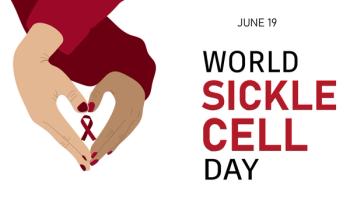
Almost half of insured Americans report receiving unexpected medical bills, leading to financial strain and contributing to worsening health outcomes for many patients, The Commonwealth Fund report reveals.

Almost half of insured Americans report receiving unexpected medical bills, leading to financial strain and contributing to worsening health outcomes for many patients, The Commonwealth Fund report reveals.

The Center on Health Equity & Access reported on new research in youth mental health, with expert perspectives on HIV, liver cancer, and health outreach.

Trusted community organizations can effectively communicate and connect underserved populations to necessary health services, Tiara Green, MSEd, Accessia Health says in an interview.

Those in minority groups face barriers even after they’ve made the hard decision to seek mental health care. The Department of Labor aims to address systemic issues on a personal level.

Suicide has emerged as the leading cause of death among Asian American and Pacific Islander (AAPI) youths, a demographic that is rapidly growing in the United States.

This week, the Center on Health Equity & Access delved into the state of equity as it relates to national spending, ovarian cancer care, health technology, insurance coverage, and postpartum depression.

Health care inequity is costing the United States billions of dollars without providing quality outcomes for patients with rare and chronic diseases, Tiara Green, MSEd, president of Accessia Health, tells The American Journal of Managed Care.

For Minority Mental Health Awareness Month, the Employee Benefits Security Agency (EBSA) in the US Department of Labor highlights the critical need to address mental health disparities among racial and ethnic minorities.

Melissa Clarke, MD, CMQ, the chief health equity officer at Elevance Health, explains "Health Equity by Design" and how Elevance Health is committed to ensuring a personalized and intentional approach for all its members.

The Greater Philadelphia Business Coalition on Health webinar series provided an in-depth framework for the advantages of including cell and gene therapy coverage in employer health plans, as well as the challenges brought by manufacturing complexities and the need to address accessibility to treatment.

Screening for postpartum depression while patients are pregnant is a crucial step to ensuring they get access to treatment if they need it postpartum, according to Rachel Dalthorp, MD, of LifeStance Health.

The Commonwealth Fund scorecard ranks Mississippi, Texas, Nevada, and Oklahoma among the poorest-performing states overall for women’s health care access, quality, and outcomes, while Massachusetts, Vermont, and Rhode Island rank at the top.

Using the modified Tinkertoy Test (m-TTT), recent findings further the understanding of specific cognitive deficits affecting life skills in individuals with schizophrenia, revealing a critical link between divergent thinking and daily functioning.

With 20 hospitals earning the Honor Roll distinction, the report compared hospitals in 15 specialties and 20 procedures and conditions. Of these, only 160 earned the "Best Hospitals" ranking, signifying excellence in clinical outcomes, nursing care, and patient safety practices.

Learn more about the 2025 Physician Fee Schedule, new health equity initiatives, improving maternal health, and pharmaceutical innovations at the Center on Health Equity & Access.

The 2025 Physician Fee Schedule includes a conversion factor reduction, expanded behavioral health services, extended telehealth waivers, new Quality Payment Program pathways, and measures to address suspect billing, alongside a Biden administration initiative introducing federal maternal health standards for hospitals.

Today, the Siftwell 2024 Medicaid-Eligible Health Equity Index report highlighted ongoing challenges and barriers that underscore the need for systemic changes to improve health care access and outcomes for vulnerable groups.

Rachel Dalthorp, MD, explains that zuranolone is recommended as the first-line medication, alongside psychotherapy, to effectively manage postpartum depression (PPD) and mitigate long-term impacts.

Despite extensive research into patient-level differences in antidepressant treatment outcomes, the variability among clinicians themselves hasn’t been thoroughly evaluated.

Kim Zynn, vice president of UPMC Health Plan's provider network and development relations team, shares how physicians can become LGBTQIA+ affirming providers, which is designated within the health plan.

AJMC's Center on Health Equity & Access shares new developments in HIV treatment, gynecological and multidisciplinary cancer care, and health care barriers faced by older Americans.

Douglas Weber, MD, explains how zuranolone has changed the landscape for postpartum depression treatment, addressing a gap in care within maternal health.

Charlie Borowicz, manager of trans and gender diverse health at Allegheny Health Network, shares how the program offers comprehensive patient-first care to those in the LGBTQ+ and gender diverse community.

This new report reveals that the US has made minimal progress in advancing health care equity over the past 2 decades.

Patients who received long-acting injectable antipsychotics (LAIs) in the hospital but discontinued them early faced a 22% to 25% higher readmission risk than those who did not receive LAIs.

With an effective therapy available for treating postpartum depression, Rachel Dalthorp, MD, believes health care providers need to focus on educating patients and helping them navigate the health system so zuranolone can reach those who need it.

This week, the Center on Health Equity & Access featured expert perspectives on sickle cell disease, obesity, psychological safety, LGBTQ+ health, and postpartum depression.

"As a health care provider and as a psychiatrist, it's something that I think about first—instead of step therapy, when I have a patient with postpartum depression, this is what they need to be on," Rachel Dalthorp, MD, explains.

June 19 is marked as World Sickle Cell Awareness Day, granting the opportunity to reflect on the current state of treatment, access, equity, and more that impacts patients living with sickle cell disease.

The Center on Health Equity & Access shares the latest news, research, and expert insights on developments related to health disparities, gaps in care, and initiatives to address them.

259 Prospect Plains Rd, Bldg H
Cranbury, NJ 08512
© 2025 MJH Life Sciences®
All rights reserved.
